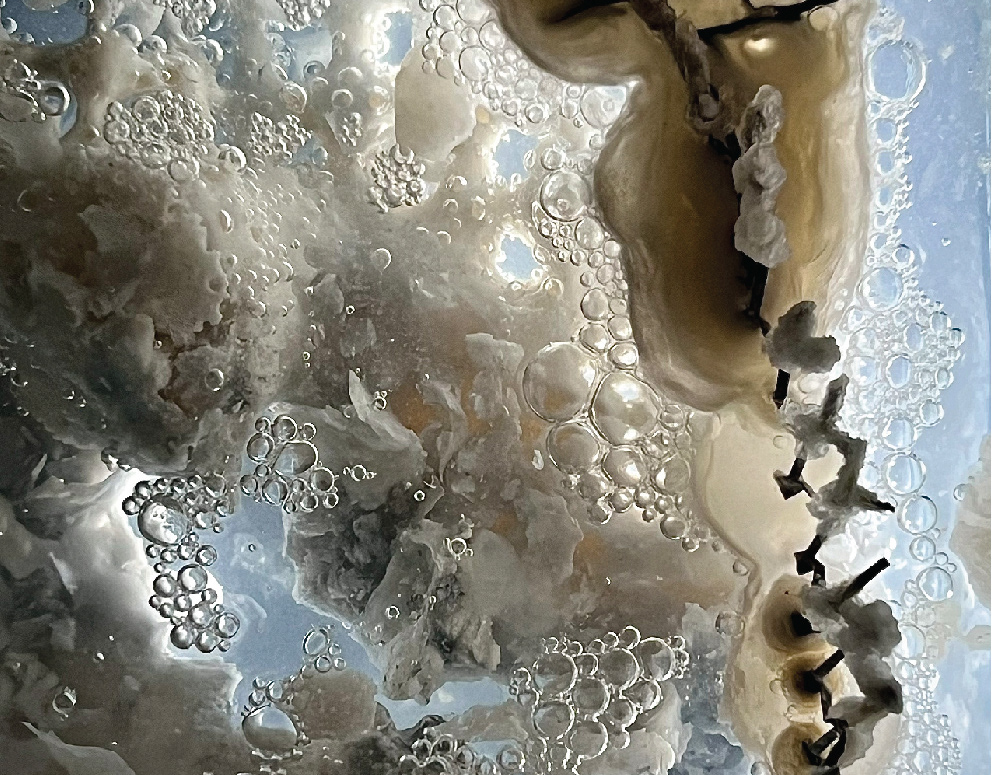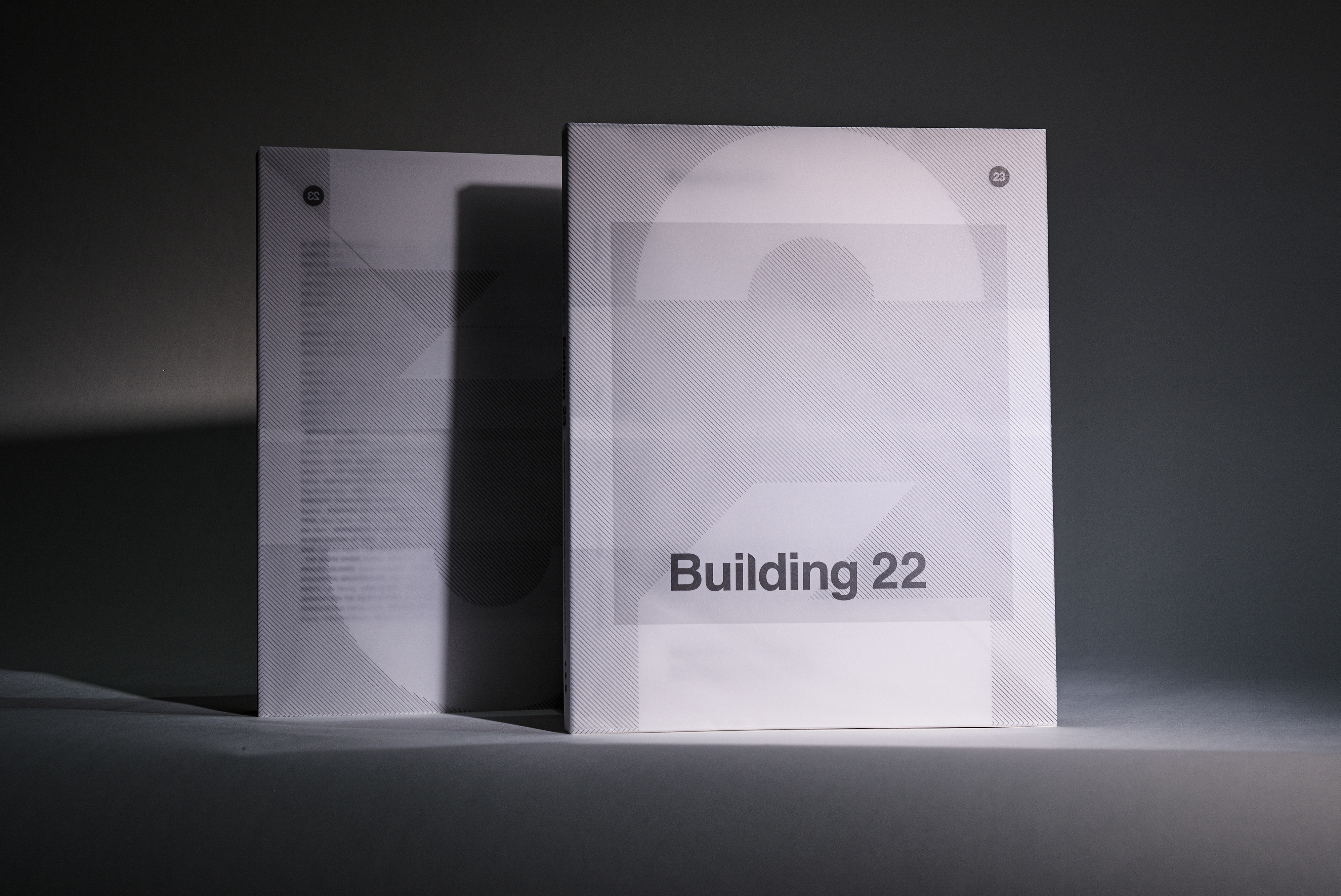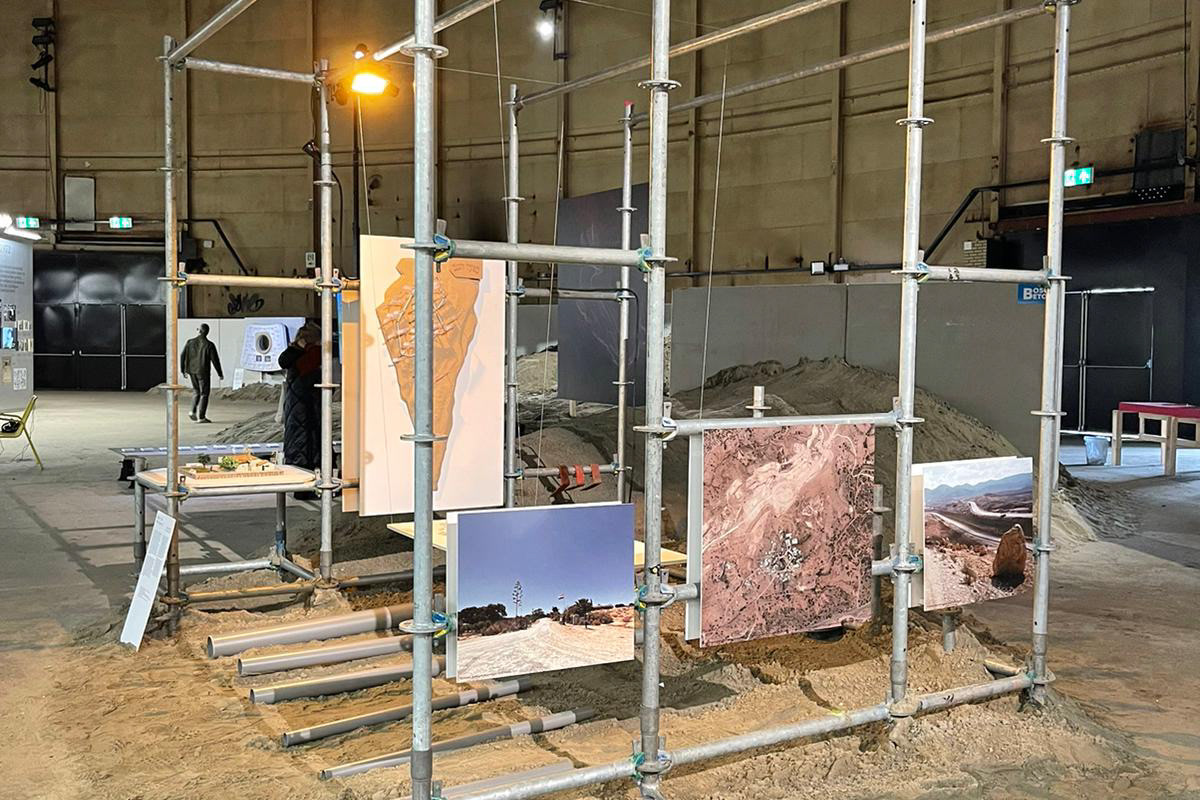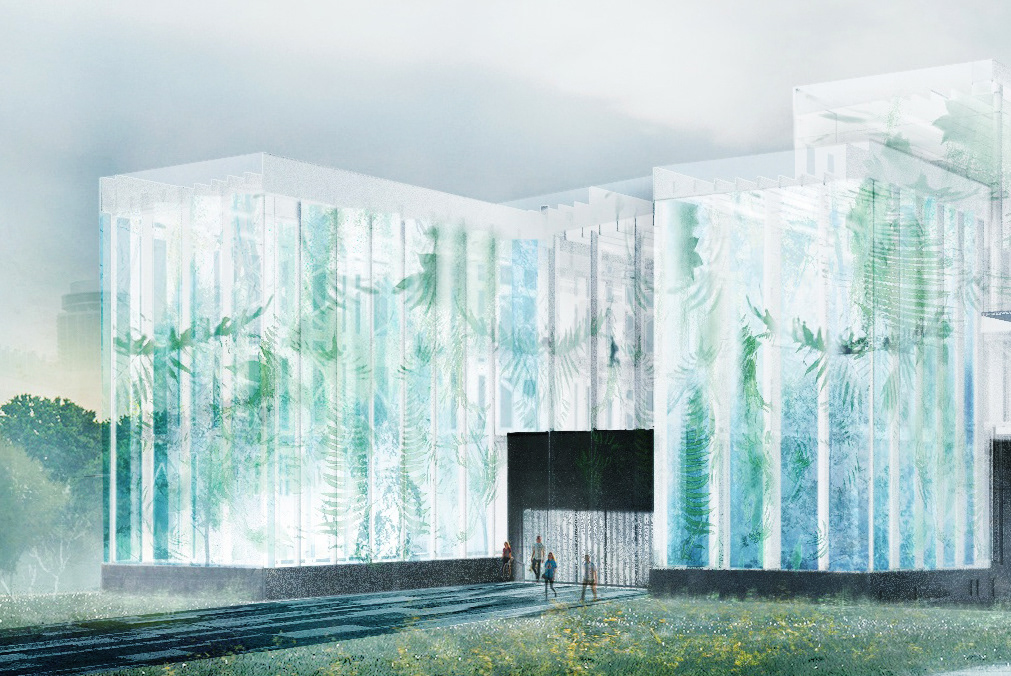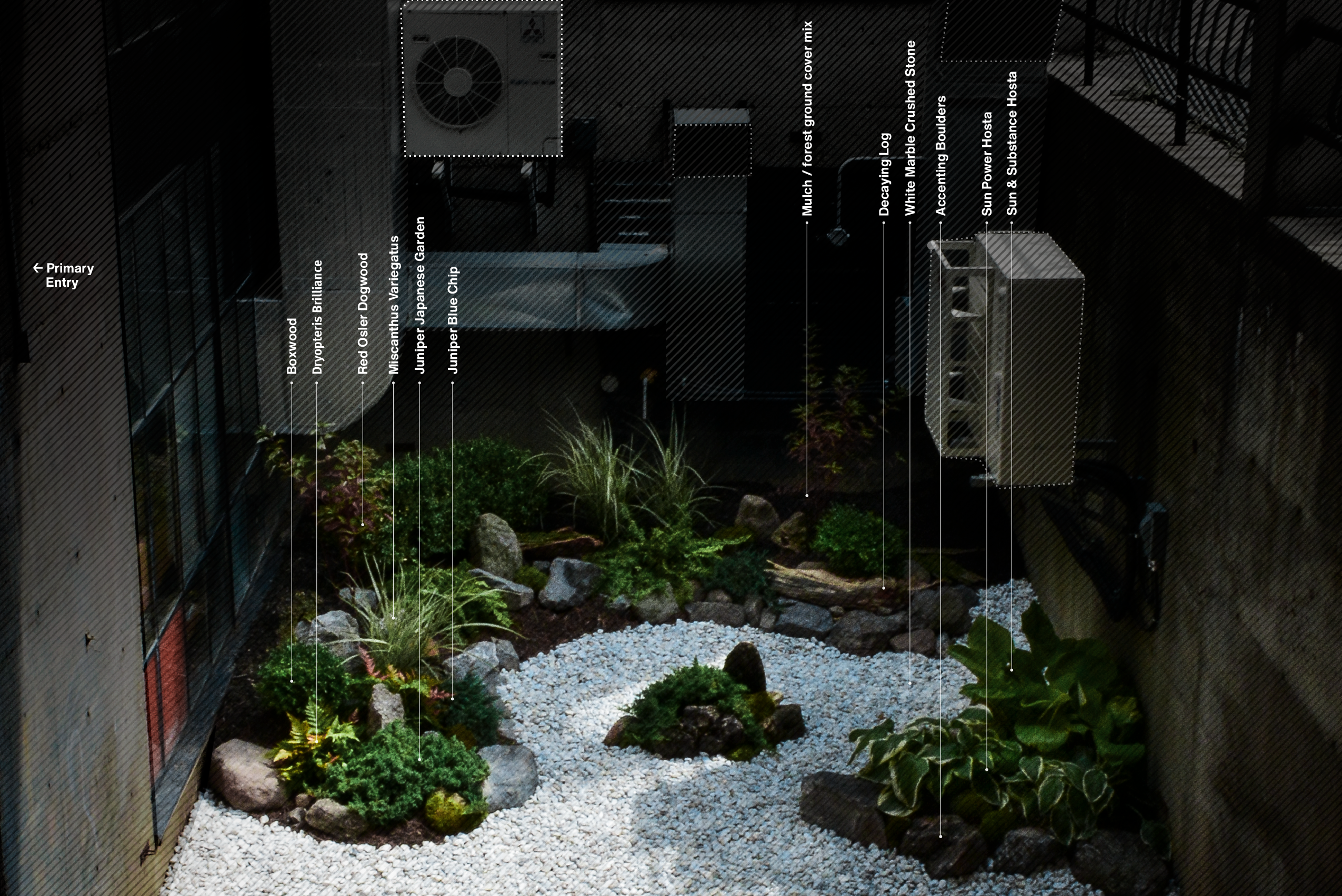An elevated boardwalk and scuba diving destination for the newly decommissioned mining bay port of Discovery Bay. The bay will be protected by the sunken mining infrastructure which also encourages new coral reefs and provides the town with an alternative industry.
Presented to researchers at the Discovery Bay Marine Lab, Jamaica (2022)
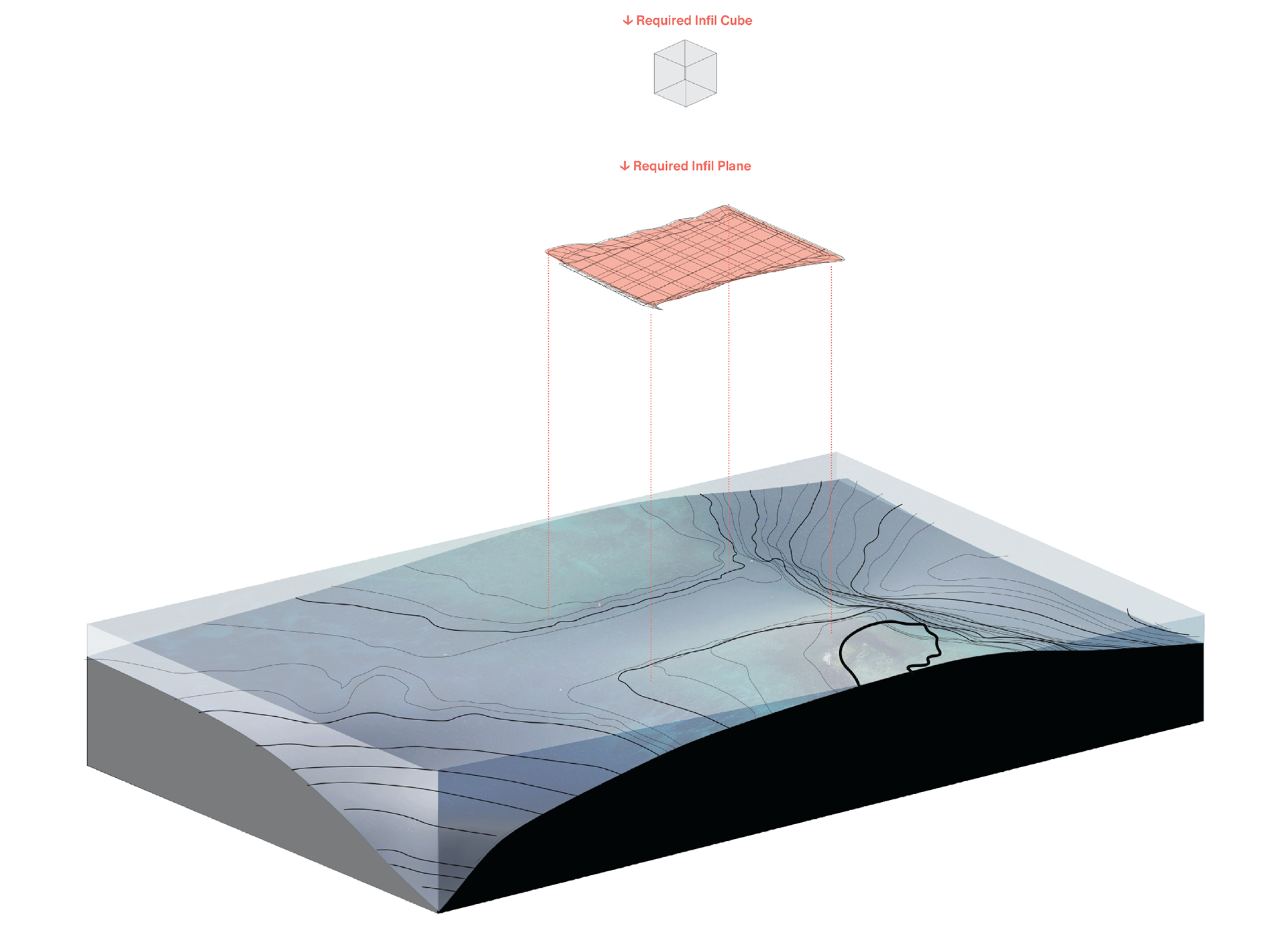
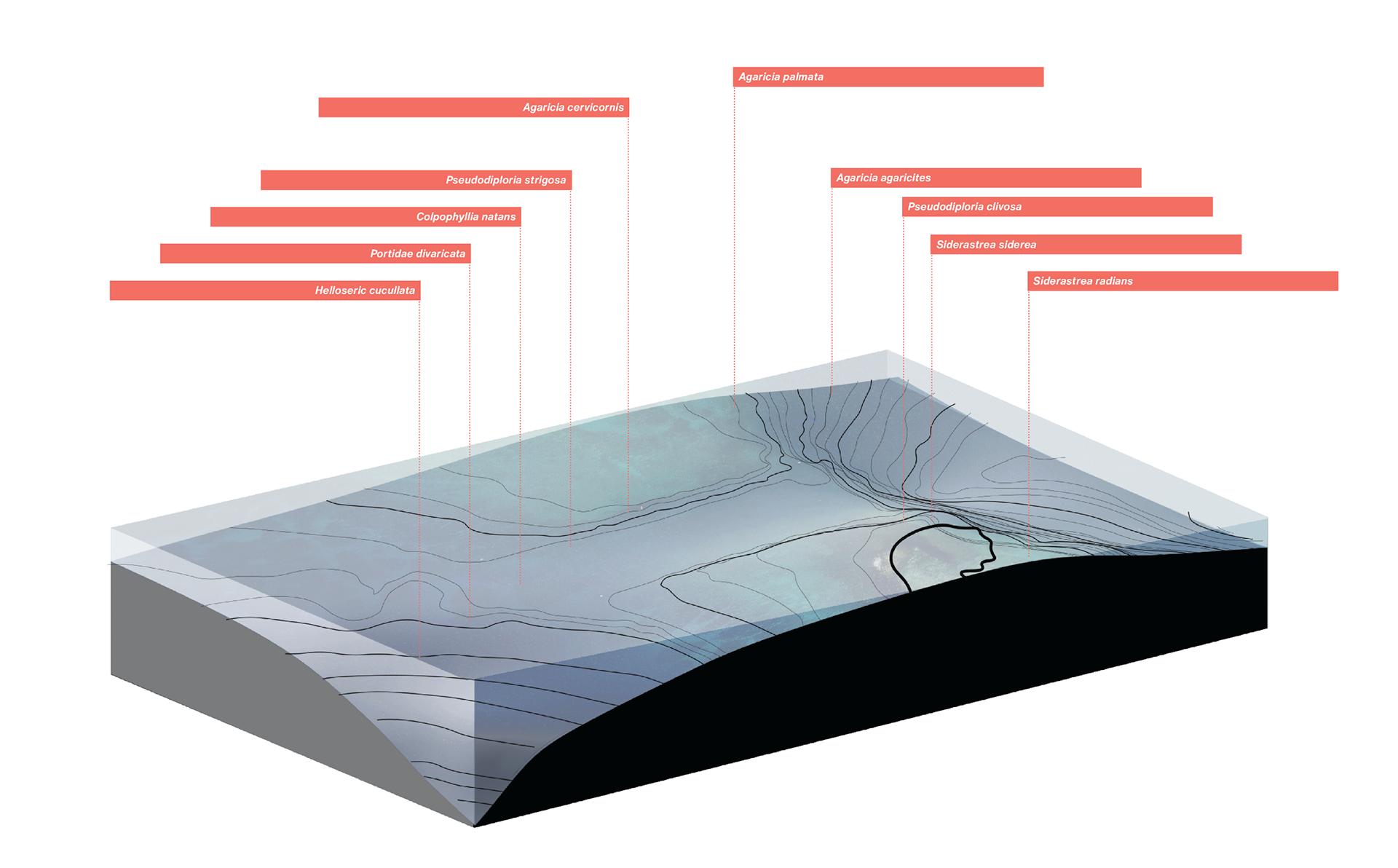
Just a few hundred meters from the Bay lies a large mineral deposit of bauxite. Shipping this material away from the Bay required a partial destruction of the local coral reef for port access. These mining operations has also led to contaminated waters, killing the local fish stock, and causing illness to the local people.
Using BioRock growing chambers to repair and regrow the reef on sunken mining infrastructure, the newly enclosed Bay can become more protected from strong ocean currents. This new space can feature a twisting boardwalk which encloses the Bay and the reef providing a space for tourists, travel, and recreational fishing.
Different designs, such as deep-water structures or shallow biorock chambers, offer varied benefits: deep-water reefs provide robust rest points with minimal disruption, while shallow reefs allow for higher-density biorock chambers. A floating pier system could support boats by spanning a 12m gap, opening and closing manually to maintain accessibility and security.
The masterplan includes elevated walk ways, marine boat entry and docking, diving and fishing points, a sunken sculpture park composed of mining machinery and warehouses, and Mangroves to protest the shoreline and provide habitat for fish spawning. The artificial reefs and lights for the walk ways will be powered by newly installed windmills. The additional current would power local communities and allow the Rio Bueno damn to be closed, returning this water system back to its natural state and slowly reversing issues associated with sediment build up, pollution, and spawning destruction it currently has.
An artificial reef is a synthetic ridge or bank lying just above or below the surface of a body of water. The material choices have expanded from objects of natural debris to sunken human infrastructure. The expressed purpose of artificial reef creation is to positively impact biological, physical, or socioeconomic conditions of marine ecosystems. Notably, artificial reef creation is not just for the benefit of natural systems, often they are employed to benefit human industries that rely on marine life such as scuba diving, ecotourism, and fisheries.
ORANDA is a North American aluminum producer, controlling the entire process from bauxite mining in St. Ann, Jamaica, through refining in America. The Government of Jamaica owns 51% of Noranda Jamaica, while New Day holds 49%. Residents express concerns over environmental and health impacts, and there is ongoing discussion about sustainable alternatives and post-mining land use. This mining infrastructure can be repurposed to give back to the community in the form of an artificial coral reef.
With the rise of ecotourism around coral reefs, artificial reefs can relieve natural reefs of anthropogenic disturbances and, in some circumstances, offer a playful alternative. Often, when inexperienced divers disrupt sedimentation on the ocean floor, the sediments settle onto the coral polyps and negatively affect natural coral reefs. Additionally, when inexperienced divers explore reefs, they may be more prone to touching the reefs which can cause harm to corals or other marine life. It would be in good practice to teach new divers on artificial reefs to protect natural reefs from this human disturbance and ensure diver safety.
More experienced divers do tend to favour natural reefs as compared to artificial reefs. However, artificial reefs are viewed positively by both experienced and inexperienced divers, offering the promising potential for future development. With proper marketing and legislation, not only could artificial reefs act as a tool for reef protection, but they could also be the primary location of diving training with little resistance from the public.

